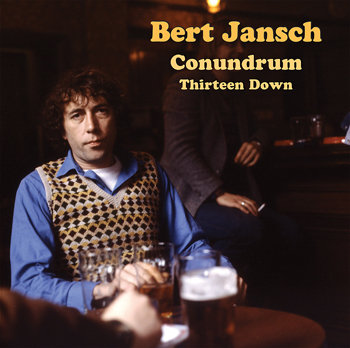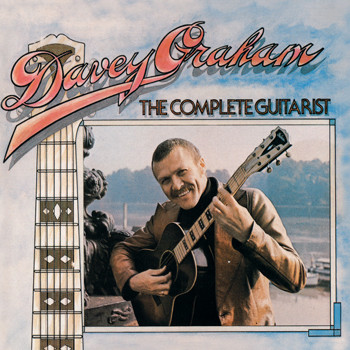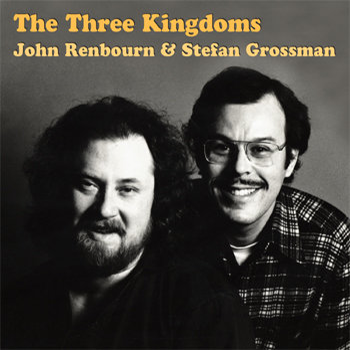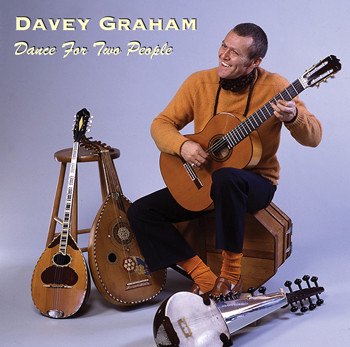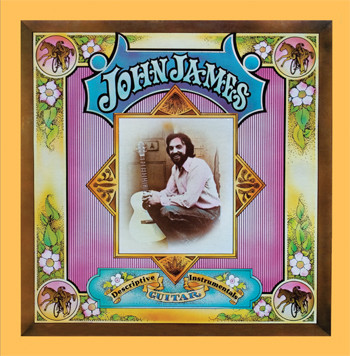
Bert Jansch - Conundrum Thirteen Down (only available as a Direct Download)
"Bert Jansch formed the Bert Jansch Conundrum in the late 1970s as a touring unit for his solo performances following the breakup of the original Pentangle. Thirteen Down, recorded in 1979, was the only studio album by this aggregation. Joining Jansch here are multi-instrumentalists Martin Jenkins and Nigel Portman-Smith along with drummer Luce Langridge. In addition, Jansch's Pentangle vocal mate, Jacquie McShee, guests on "If I Had a Lover."
The selection of tunes offered on Thirteen Down is uniformly strong. Several tracks could best be described as "funky folk music," especially the instrumental, "Una Linea di Dolcezza." Other standout tracks include "Down River," "Time and Love," "In My Mind" and "Sweet Mother Earth." The blend of British Isles folk, jazz and pop will be familiar to fans of Pentangle, and Jansch's vocals and guitar work are as unique as ever. Jenkins' violin and flute provide the textural colors that keep the arrangements varied from song to song. Ranking with the best work of Bert Jansch's lengthy career, Thirteen Down is a must-have for folk and acoustic music enthusiasts." – Jim Newsom, Allmusic.com
Song Samples:
1. In My Mind
2. Sovay
3. Where Did My Life Go?
4. Bridge
5. Time and Love
6. If I Had a Lover
7. Una Line di Dolcezza
8. Let Me Sing
9. Down River
10. Nightfall
11. Ask Your Daddy
12. Sweet Mother Earth
13. Single Rose
Review: Bert is an icon of the British folk revival. His debut, self-titled album is one of the era's cornerstones, and his group, Pentangle, based around his collaboration with John Renbourn, is arguably the era's most memorable ensemble. In the late seventies, he formed "Conundrum" with multi-instrumentalist Martin Jenkins, bassist/pianist Nigel Portman Smith and drummer Luce Langridge. Thirteen Down is credited to "The Bert Jansch Conundrum" and would be their only studio album. Jenkins replaced Renbourn as Bert's main collaborator during the period and had a notable impact on the music, his violin and phased electric guitar accompaniments highlight the sublime instrumental album, Avocet (1978), and his original piece, "Nightfall" is a standout track on Thirteen Down. Portman's Fender Rhodes piano work and Langridge's laid back drumming style gave the group a distinct, soft rock character that mirrored popular FM radio music of the time, and certainly provided a new twist to the Jansch discography.
Those familiar with the original LP or 1998 CD reissue versions of Thirteen Down will notice a curious re-shuffling of tracks on this latest reissue. One could speculate that the modified sequence was tailored to emphasize the "vintage" Jansch material over the aforementioned soft rock material. The original sequence began with the Steely Dan-ish instrumental, "Una Line di Dolcezza," and was followed by a relatively glossy "Let Me Sing," especially compared to the stripped-down Jansch/Jenkins version that appears in the Acoustic Routes documentary. By contrast, the reissued sequence begins with "In My Mind," a strong, decidedly more conventional (for Jansch) sounding tune, though perhaps not an ideal as an opening track, since it jumps abruptly into verse with no instrumental introduction. A reworked version of "Sovay," from the Pentangle repertoire, follows, featuring an interesting overlapping treatment of the verses, with vocals traded off in turn by Jansch and Jenkins.
His biographer, Colin Harper remarks on Jansch during this period:"His prime concern when recording in the sixties had been the guitar his work in the mid-seventies would be characterized by a swing to the other extreme, with the presentation of voice and songwriting to the fore." ?
While this assertion may be more convenient than true, given the appearance of the Avocet album in 1978, it is more or less supported by the majority of Thirteen Down. Bert's guitar resides deep in the mixes of selections like "Time and Love," "Down River," and "Sweet Mother Earth," in favor of the breezier sounds of the supporting instruments. One wonders ifThirteen Down's producer, Nic Kinsey, or the group's other members, or even Jansch himself was steering the arrangements toward a sound that would be palatable to a wider audience. Certainly, this far into his career, it would not be remarkable if Jansch fancied some of the benefits that would accompany a popular single.
Yet, not every selection on the album fits this mold. "Ask Your Daddy" is a sweet tune that captures the sense of whimsy Jansch demonstrated at times on earlier records ("Ring-a-Ding Bird" from 1965's It Don't Bother Me comes to mind, for example). Its most powerful track, the world-weary "Where Did My Life Go" is said to have been written to commemorate Sandy Denny, who passed away in 1978. The song could also be interpreted as autobiographical, having been penned during or around the time of Jansch's 1979 tour of the States, which Harper refers to as Bert's "most horrendous drinking period". – Work&Worry.com
